Wrap Your Brain Around the Idea of Strategy
Ask ten executives to define strategy, and you will receive ten different answers. The essence of strategy is about choosing where to invest, whom to serve and how to compete and win. From George Day’s classic definition: “Strategy is a series of integrated actions in pursuit of competitive action,” to Jack Welch’s overly simplistic: “You pick a direction and implement like heck,” strategy is about choosing where to apply your firm’s resources to successfully serve a particular audience. When considering competitors, some say that strategy is about using force against weakness.
What Strategy Is Not
- Strategy is not just a list of financial targets. Financial results are outcomes of the actions taken to execute on a strategy.
- Growth is not a strategy. An executive once suggested: “Our strategy is to grow at 10% per year.” Another offered: “Our strategy is to grow faster than our competitors.” Neither were articulating a strategy for their firm.
- Strategy is not about the budget. You use the strategy to define and prioritize the investments needed to carry out a strategy. A budget is a detailed listing of the timing and total of planned expenditures and revenues.
- Strategy is not an event. It is a dynamic process demanding constant evaluation and regular refinement based on lessons learned in the marketplace. Many firms relegate the work of strategy to an occasional off-site or planning session.
- Strategy is not a tactical operations “To-Do” list. While one of the outputs of any strategy process is a series of coordinated actions as described above, the actions must focus on serving customers, opening new markets and developing competitive strengths and not on listing out operational improvements.
The Process of Strategy
Too many firms fall into the trap of applying template-type approaches to strategy development. A common and ineffective template suggests that the firm review the mission, define a future vision and then describe the actions necessary to get to that vision. While all of those topics have merit at the right time, the application of this template-type process yields nice slides and summary documents but little meaningful strategy content.
The real work of strategy involves research, exploration, and discussion focusing on the following:
- Assessing the firm’s current situation vis-à-vis all key stakeholder audiences, including customers, suppliers, competitors, and key partners.
- Assessing the firm’s unique advantages and inherent disadvantages or weaknesses.
- Identifying and assessing new developments in the marketplace or in emerging technologies that offer opportunities or potential threats for your firm.
- Assessing the changing needs and businesses of customers and exploring areas where the firm might strengthen, invest or divest.
- Distilling the above into a coherent analysis.
- Answering: “Based on this analysis, what should we do?” Don’t be fooled by the simplicity of this question. It is extremely difficult to answer it in clear, simple and meaningful terms. Rumelt describes this as the “Guiding Philosophy” of strategy.
Finally, based on the above work, the team must assess which investments to make and what actions to take to realize the strategy. This includes evaluating investment options; initiating new projects, identifying key requirements for talent, systems and supporting resources. These actions are distilled into a project plan that describes the firm’s strategy execution plan and process.
The Hard Work of Strategy
While it would be easy based on the actions identified above to presume that defining an effective strategy is fairly straightforward, that would be a mistake.
Identifying meaningful and accessible opportunities and determining how to realize those opportunities in a competitive or demanding marketplace is a difficult process. Strategy work demands an objective evaluation of the firm’s capabilities and ample debate over the best way to realize the opportunities. Like most activities in life, the more thorough the planning, the better the outcome. In the case of strategy, the planning is a messy process of ideas and opinions and egos that must give way to a cogent and agreed upon way forward in pursuit of serving customers and beating competitors.
Strategy Execution
The process of implementing the actions described and establishing measures of progress and financial targets are core to what is described as the execution process.
A healthy execution program recognizes the need for widespread, clear communication and coordination and incorporates the tools of project management to support implementation and reporting. Additionally, an effective strategy execution process incorporates feedback loops to reflect and adjust for lessons learned in the marketplace.
7 Challenges with Strategy
Given the issues and concepts described above, you might reasonably conclude that the work of strategy is a messy, somewhat organic and risk-filled process. You would be right with this assessment.
Some areas where organizations struggle with strategy include:
1. Failing to engage at the right level of depth on assessing capabilities and opportunities
2. Confusing operational planning with strategic planning
3. Failing to define a detailed execution process with clear targets and progress measures
4. Allowing politics and ego to reduce the work of strategy to a debate over budgets and territory
5. Not investing in exploring potential disruptive events or emerging trigger events in other markets that might impact the firm’s customers or technologies
6. Failing to build-in feedback loops to reflect lessons learned in the marketplace
7. Failing to treat strategy as a process that demands constant evaluation and refreshing
The Bottom Line
The great news is that an invitation to participate in defining the future direction of your firm is a compliment and a testament to your boss’s belief in your knowledge and ability to contribute to the process. Do not let the above content frighten you away. While there is much more to develop as a critical thinker and great strategist, your knowledge of the process, approaches and potential pitfalls described above, offers you a distinct advantage versus many of your peers. Use the tools in great strategic health.
Source: https://www.thebalancecareers.com/how-to-prepare-for-your-first-strategy-meeting-4038608

